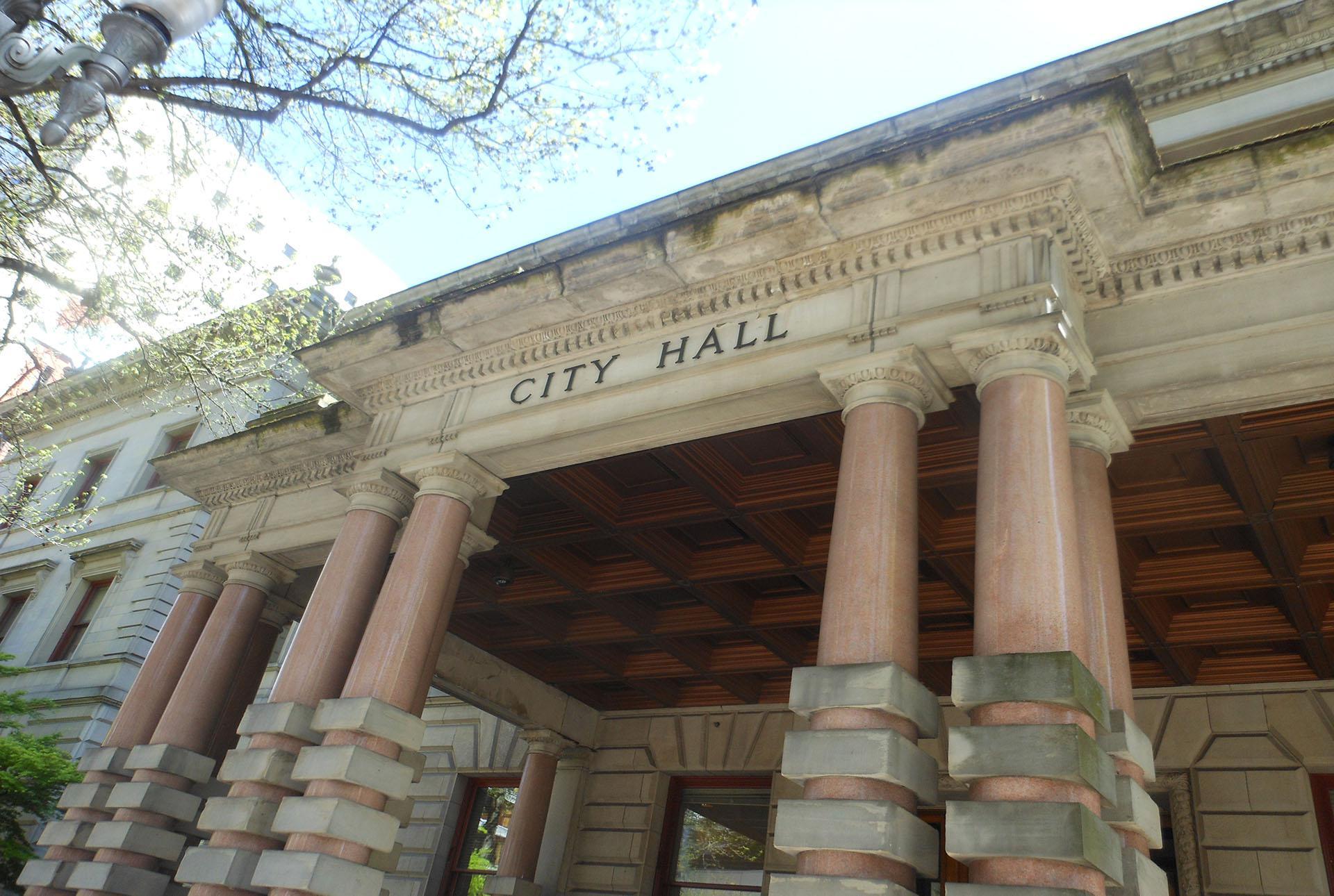
Portland City Hall.
Amanda Troxler / OPB
Nine months after Portland voters decisively approved a new police oversight board, City Council took the first official step Wednesday toward delivering on voter demands.
City Council unanimously voted to establish and appoint 20 community members to the ReThink Police Accountability Commission, tasked with designing a transition plan from the current oversight body to the new board, delineating the powers of the new board and determining how it will be organized.
“We had a very successful recruitment process for this commission with over 100 completed applications being submitted,” said Commissioner Jo Ann Hardesty, who has championed the new oversight board. “We have a diversity of backgrounds, viewpoints and lived experience that will produce a robust and thoughtful set of recommendations on how our new police oversight system should function.”
Hardesty said her office took input from the community and worked with the city attorney to outline the work the commission will do.
The 20-member commission is made up of long time police accountability and health care activists, a lawyer and paralegal with backgrounds in civil rights, children of immigrants, Iindigenous people, people who have lived experience with substance abuse and the criminal justice system and a woman who runs a sex worker collective and will be serving on the commission while studying for her masters in Berlin, Germany.
It’s been a rocky road to get to this point. Two days after more than 80% of Portland voters approved the charter amendment creating the oversight board, the police union representing rank-and-file officers lodged a grievance to stop it, vowing to fight the board’s creation.
But over the past nine months, the union’s ability to block the board shrank. Negotiators for the city punted on the issue during union contract negotiations, giving time for state lawmakers to pass legislation carving out a narrow exception to state labor laws that otherwise would have required the city to negotiate with the new board into the police union contract.
A final foil in the union’s battle to block the oversight board came in early July, when lawyers with the U.S. Department of Justice requested an amendment to the settlement agreement outlining the city’s transition plan to the oversight board. If that happens, stopping the oversight board would require a federal judge to step in and overrule both state law and the federal settlement agreement, a step federal prosecutors say is unlikely.
“A federal court order is not going to be undone by state bargaining law,” assistant U.S. attorney Jared Hager said at a recent meeting of the Portland Committee on Community Engaged Policing. “The United States believes its position is extraordinarily strong.”
Portland Mayor Ted Wheeler said it was awkward for him that a number of people on the commission so passionately disagree with his views on policing, and have called for his resignation. But, he said, an ability to listen to those different perspectives will be what determines the commission’s success. He said they have an exhilarating and challenging job ahead of them.
“You ... will have to listen to other viewpoints, some viewpoints which might be very different from your own viewpoints, and take those viewpoints into consideration,” Wheeler said at Wednesday’s council meeting. “Ultimately, if this is to be a successful oversight and accountability mechanism, it has to be able to work with the Portland Police Bureau.”
The commission is scheduled to spend 18 months doing its work before the new oversight board can take over from Independent Police Review, the group currently charged with police oversight.

